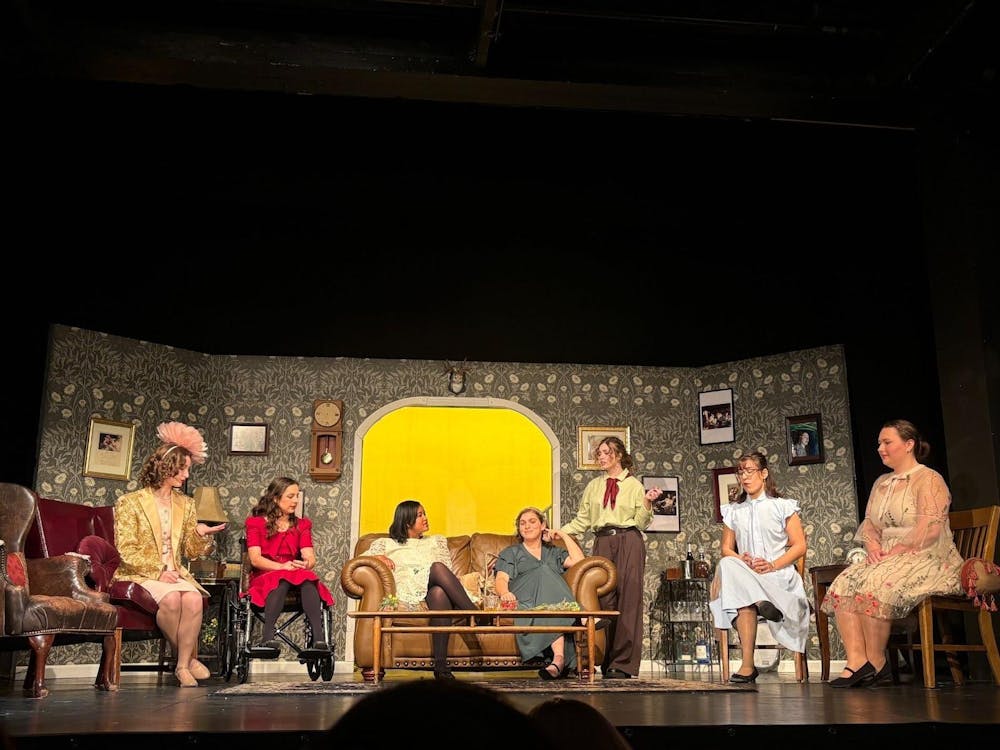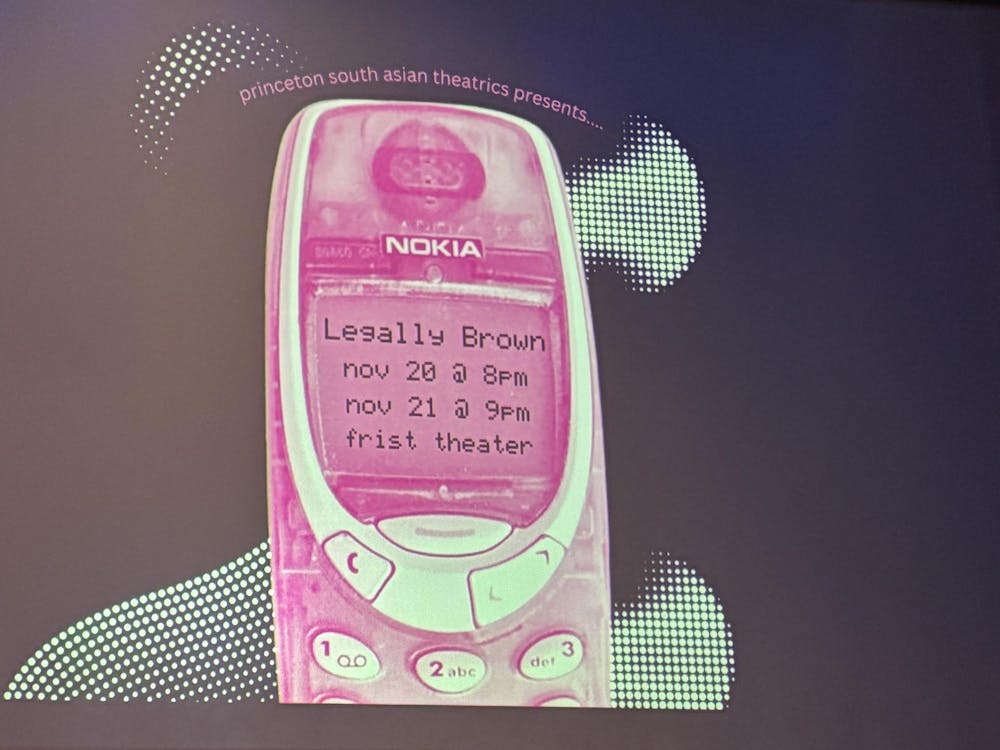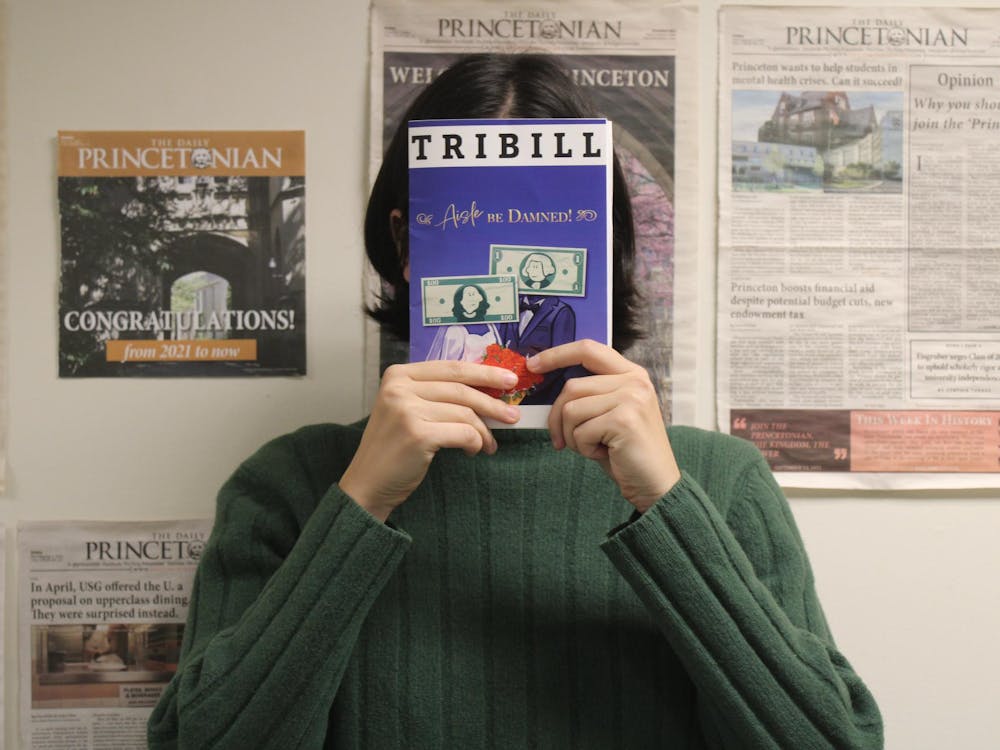This Reunions, Theatre Intime debuted "Everything in Isolation," written by Ava Geyer ’15 and directed by David Drew ’14. The play follows the lives of three 20-something former addicts holed up for months in a motel room who are trying to find the child whom one of the characters had given up for adoption eight years prior. The production closes tonight at 8 p.m. in the Hamilton Murray Theater.
The Daily Princetonian: How would you sum up "Everything in Isolation?"
Ava Geyer: It’s sort of a "dark farce." A lot of the characters are performers, so I think a lot of [the play] touches on what it means to be authentic.
David Drew: It sort of shows how you can carefully plot out how something that might matter a lot to you is going to be received, but sometimes you can turn it into sort of an ugly, fake thing.
DP: Have you worked together as playwright and director before?
DD: Not quite. Last year, we took a television screenwriting class together with professor David Kelley, and we wrote a TV pilot together then with one other guy. So that was very different in that we were co-writing. But I guess in some ways it’s —well, we had a very long period of development to this play. Originally, we proposed a completely different play.
DP: Could you tell us a bit about that one?
DD: It was called "One Way to Say It,"with similar, sort of farcical elements. It was about a family [in which] the daughter got involved in some sort of phone sex operation.

AG: It was pretty edgy material. "One Way to Say It" was the first play that I ever wrote in my freshman year, so I re-proposed it as an “updated” play with the same characters. But that turned out to be a really impossible exercise because it was taking something that my 19-year-old brain was interested in—which I guess was phone sex—and trying to transfer that, wholesale, to whatever I'm interested in now. So it was actually easier to just kick down the walls and do something new.
DP: How did Intime take the news?
DD: We did have to convince them. Ava had to kind of convince me first, and then we scheduled a reading of the new play … And I was blown away. It got a really good response.
AG: It pays to be ballsy. That’s the takeaway.

DP: Was the rest of the production process this spontaneous?
DD: I was pretty clear that I wanted as close to a fixed script to direct.
AG: And, in a way, that’s nice, because with something that you’ve written — I hear a run, and I think, “If I could just run a pencil through the first half of that.” But, in a way it’s been really helpful … knowing that it’s not so much mine anymore, and it’s just as much theirs.
DD: You know, I’m certain that this won’t be the final version of the play. But it’s been really cool to say, OK, we have a new text … and we’re gonna put it up and see what works and what doesn’t.
DP: Were you guys very involved in the revision process together?
AG: Kind of, but it didn’t feel like too many cooks in the kitchen. We very much had a consensus.
DD: And this is only the second show I’ve directed, so I’m still very much learning. I can’t read the script and be like, “Oh, I can’t direct this, no no no.” I didn’t have the authority to start thinking in that way.
AG: And definitely major props to Theatre Intime because after I told David I wanted to rewrite the script, we reached out to another friend who was on the board. And one of her responses, which I kind of loved, was, “Well, Intime calls itself a playwright’s theater, so this time we’re gonna really test and see if that’s true.” And it is. They passed.
DP: So it sounds like the play is very centered on its characters. How was the casting process, and how did it affect revision?
DD: I feel like I got very lucky. It was very much about finding actors — not just how they could fit into the roles but also finding how they can be stretched to unlock new stuff about the characters. The biggest difference I noticed is with the character Will. In the reading, we had him played by Mark Watter ’14, who had this sort of manic energy. And Chris Littlewood ’16, who’s doing it now and is amazing, just came to it with a very different understanding of the character and a very different energy. It felt like a different character. He’s very much made it his own in an awesome way that still fits with the text. I’d say the same for all of [the cast].
AG: I think one thing that struck me when we were doing callbacks is that … the play is not general in any sense. Everyone’s got their specific qualities, like [Will]. He’s gay, he’s from Indiana, he’s a big-time addict … but what is funny is that there were still so many different interpretations of the role.
DP: So would you say the play has something for all audiences?
DD: Well, if we’re going by motion picture ratings, it’s an R. But you know, there’s no violence, no onstage drug use, no blood.
AG: But if you’re a parent, a child, a grandparent, a lover of theater or not, there’s something for everyone.







